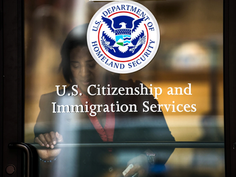West African Military States Offer Visa-Free Travel Amid Breakaway from Ecowas
- Geeshan Mudalige

- Dec 16, 2024
- 2 min read
By G. Mudalige, Jadetimes Staff
G. Mudalige is a Jadetimes news reporter covering Technology & Innovation

In a significant geopolitical shift, the military-led governments of Burkina Faso, Mali, and Niger have declared visa-free travel and residency rights for citizens of the Ecowas bloc, even as they prepare to officially exit the regional alliance in January. This move, framed as a gesture of goodwill, underscores the trio’s commitment to preserving historical ties despite their impending withdrawal from the 15-member Economic Community of West African States (Ecowas).
The decision comes amid strained relations with neighboring states following military coups in Niger, Burkina Faso, and Mali over recent years. Ecowas had responded to these unconstitutional regime changes by suspending the trio’s membership and calling for the restoration of democratic governance. However, the juntas resisted these demands, maintaining their grip on power and signaling their alignment with alternative political and security alliances, including a pivot towards Russia.
Mali’s military leader, Assimi Goïta, emphasized that citizens of Ecowas nations would retain the right to “enter, circulate, reside, establish, and leave” the territories of the breakaway bloc, known as the Alliance of Sahel States. This declaration highlights the breakaway states' intent to foster cooperation and maintain regional interconnectedness, despite their decision to leave Ecowas. It also serves as a counterbalance to perceptions of hostility, aiming to mitigate the political fallout of their exit.
The leaders of the three Sahelian nations argue that their departure from Ecowas is motivated by a rejection of the bloc’s alleged bias toward Western powers and its handling of regional crises. They have criticized Ecowas for being overly influenced by Western interests, particularly France, and have instead sought alternative security partnerships to combat armed jihadist insurgencies within their territories. These partnerships have included stronger ties with Russia, further highlighting their divergence from the bloc’s traditional alliances.
The departure of Burkina Faso, Mali, and Niger marks the first split in the history of Ecowas, which was founded in 1975 as a platform for regional economic and political integration. Their withdrawal will see the bloc lose 76 million people and over half its geographical area, a development that poses a significant challenge to Ecowas’s efforts to maintain unity and address pressing security and economic challenges.
At the ongoing Ecowas summit in Abuja, the bloc’s leaders are grappling with the ramifications of this unprecedented split. Omar Touray, the head of the Ecowas commission, described the impending withdrawal as “disheartening” but commended ongoing mediation efforts. Despite these diplomatic overtures, the three nations have declared their decision irreversible, reaffirming their commitment to the timeline set for their departure.
The new Alliance of Sahel States appears to be forging its path with a focus on sovereignty and regional solidarity. Yet, their breakaway presents a test of resilience for Ecowas, which must now navigate the challenges of maintaining cohesion and influence in a region marked by political instability and external pressures. The visa-free travel initiative, while a conciliatory gesture, signals a complex redefinition of relationships in West Africa—one that will likely shape the region's future geopolitical and economic landscape.











































Comments